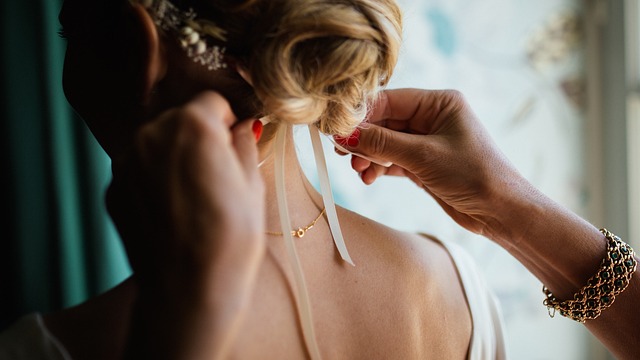Is It Bad To Wear Your Heart On Your Sleeve

Wearing your heart on your sleeve is a phrase that has been used for centuries to describe someone who is open and honest about their emotions. When someone wears their heart on their sleeve, it means that they show and share their feelings easily without fear. But is it really a good thing to show your true emotions to the world? This article will explore the pros and cons of wearing your heart on your sleeve.Whether wearing your heart on your sleeve is good or bad depends on the situation. It can be beneficial to be open and honest with your feelings, but it can also lead to vulnerability. On one hand, being able to express yourself openly can help you build strong relationships and better understand yourself. On the other hand, it can leave you exposed to potential hurt and manipulation from those who take advantage of your openness. Ultimately, it’s up to the individual to decide when and how they want to share their emotions.
Advantages of Wearing Your Heart on Your Sleeve
Being open and honest about how you feel can have many advantages. It allows people to understand where you stand on certain matters and can help build deeper, stronger relationships with others. Being open about your emotions can also help relieve stress and reduce the risk of bottling up negative feelings. Wearing your heart on your sleeve is a great way to be vulnerable in a safe way, while also being honest with the people around you.
Having the courage to be yourself and express yourself authentically can help build trust between friends, family, and coworkers. This is especially true if you are open about how you are feeling when things don’t go your way or if something upsets you. Showing vulnerability can create stronger connections with those around you as they appreciate that you trust them enough to be open and honest.
In addition, wearing your heart on your sleeve can also lead to greater self-awareness. When you openly express yourself it allows for reflection on what makes you feel a certain way and why, allowing for growth in understanding how best to handle difficult situations or emotions in the future. This not only helps strengthen relationships but also strengthens your own emotional intelligence.
Finally, being able to wear your heart on your sleeve is a great way of self-care and ensuring that important needs are met in relationships. It allows for communication of important needs such as love, support, care, etc., which ensures that these needs are met within relationships as well as allowing for resolution of issues more quickly than if these feelings were kept hidden away.
Advantages of Wearing Your Heart on Your Sleeve
Wearing your heart on your sleeve can be advantageous in many ways. For one, it shows that you are a passionate and open person who is willing to share their emotions and feelings with others. By being this kind of person, you can easily connect with others and build strong relationships. Furthermore, being open about your emotions can help you get through difficult times by allowing yourself to express them in a safe way. Additionally, it may make it easier for other people to understand you and be more supportive of your needs. Lastly, by wearing your heart on your sleeve, you may find the courage to take risks and pursue the things that make you happy.
Disadvantages of Wearing Your Heart on Your Sleeve
On the other hand, wearing your heart on your sleeve can have some drawbacks too. For example, if someone takes advantage of your openness or expresses negative feelings towards you as a result of it, this could be damaging to both your mental health as well as any relationships that were built upon it. Additionally, by being so open about how you feel all the time, it could lead to people feeling overwhelmed or not knowing how to handle such intense emotions. As such, they may distance themselves from you which could have a negative impact on both parties in the long run. Finally, if you wear your heart on your sleeve too much without considering how others will react or what their feelings are then this could also cause unintended harm.
What Does It Mean to Wear Your Heart on Your Sleeve?
Wearing your heart on your sleeve is an expression that means to show your emotions clearly, openly, and without reservation. It is often used to describe someone who is very expressive and transparent about their feelings. To wear your heart on your sleeve is to be vulnerable and honest about what you are feeling, even if it makes you vulnerable to criticism or judgment. This expression has been around since the 16th century and has been used in literature, songs, and other forms of art.
The phrase “wear your heart on your sleeve” was first used in Shakespeare’s play Othello in 1604 where a character says “I will wear my heart upon my sleeve for daws to peck at”. Since then, it has become a widely-used phrase with many interpretations. In some cases, it can be seen as a sign of strength and bravery as being open about one’s feelings can be difficult. In other cases, it can be seen as a sign of naivety or recklessness as it leaves one open to potential hurt or exploitation.
Regardless of how one interprets this phrase, it is clear that wearing one’s heart on their sleeve means being honest about their feelings – even if those feelings are not always ‘positive’ ones. It takes courage to express emotion openly and honestly without fear of judgement or criticism from others. People who wear their hearts on their sleeves are often thought of as passionate and sincere people who live life with no regrets or inhibitions.
At the end of the day, wearing one’s heart on their sleeve is all about being true to oneself and having the courage to express oneself openly without fear of judgement or criticism from others. It takes strength and vulnerability to show emotion openly but it can also lead to greater understanding between people in relationships both romantic and platonic.
How to Wear Your Heart on Your Sleeve Appropriately
We all know the phrase “wearing your heart on your sleeve”, but what does it really mean? It means that you are openly expressing your emotions and feelings with others. It’s a way of communicating without words, yet it shouldn’t be done indiscriminately. There is a time and place to wear your heart on your sleeve, and doing so in the wrong situation can lead to misunderstandings or hurt feelings. Here are some tips for how to wear your heart on your sleeve in the right way.
First of all, you need to be honest about your feelings. Don’t pretend that you feel something when you don’t. If you don’t feel comfortable expressing yourself openly then take a step back and think about why that might be. If you feel like it might be too risky, then it’s better to keep things to yourself rather than make things more complicated by expressing yourself inappropriately.
Secondly, make sure that the person or people who you are sharing with are open to hearing what you have to say. Being able to express yourself is only worthwhile if the other person is listening and understanding what you are trying to communicate. Make sure there is an open dialogue between both parties before you decide to wear your heart on your sleeve.
Finally, know when enough is enough and stop wearing your heart on your sleeve before it becomes too much for either party involved. The key here is balance – make sure that both parties are comfortable with the level of emotion being expressed before going any further. Remember not everyone is as emotionally open as others so respect their boundaries if they feel like things have gone too far or they no longer want to engage in conversation with you at that level of intensity.
Wearing your heart on your sleeve can be an incredibly powerful form of communication but if done incorrectly can also cause more harm than good. Take some time to think before expressing yourself and make sure that the other person is open and accepting of what you have to say before taking any risks in wearing your heart on your sleeve!

Understand Your Feelings
It’s important to understand your feelings before you express them. Take the time to think about why you feel the way you do and whether it’s appropriate to express your feelings in the moment. You may find that it’s better to take a step back and assess the situation before speaking out. Being mindful of your emotions can help you avoid the potential pitfalls of wearing your heart on your sleeve.
Be Aware of Your Body Language
Your body language is just as important as what you say when expressing yourself. Pay attention to how you are carrying yourself, as well as how others are responding to you. If someone seems uncomfortable with your level of emotion, take a step back and adjust your approach. It’s also important to be aware of any negative reactions that may be coming from those around you.
Be Open To Constructive Criticism
If someone does offer constructive criticism about how you are expressing yourself, take it in stride. It may be difficult at first, but try to listen objectively and consider the other person’s point of view. This will help you become more aware of how others perceive your emotions and give you an opportunity for growth.
Take Time For Yourself
It’s important to take some time for yourself if things become too overwhelming. Taking a break can give you an opportunity to reflect on the situation and gain perspective. This will help ensure that your emotions don’t take control over every aspect of your life.
Learn Healthy Coping Mechanisms
Having healthy coping mechanisms in place can help prevent negative effects from wearing your heart on your sleeve. Find activities that make you feel calm and relaxed, such as journaling, meditation, or yoga. Incorporating these activities into your daily routine can help ease stress and make it easier to manage strong emotions when they arise.
Are You Too Emotional When You Wear Your Heart on Your Sleeve?
It can be difficult to know when you are being too emotional or if you are wearing your heart on your sleeve. It is important to recognize when you are feeling overwhelmed and need a break from the emotional roller coaster. When you wear your heart on your sleeve, it means that you express your emotions openly and freely without worrying about how other people might perceive them. This can be beneficial in certain situations, but it can also lead to misunderstanding or hurt feelings if not managed properly.
The first step in managing your emotions is to become aware of them. Pay attention to what triggers certain feelings and try to identify the source of those feelings. Are you feeling overwhelmed because something happened that was out of your control? Or, are you feeling frustrated because you don’t feel like anyone is listening? Once you have identified the source of the emotion, take some time away from the situation and practice some self-care techniques such as deep breathing or taking a walk.
When it comes to expressing emotions openly, it is important to remember that not everyone will react in the same way. Some may be more open to hearing how you feel while others may not be as receptive. It is important to remember that not everyone has the same level of emotional intelligence as you do and respect their boundaries as well as yours.
Lastly, make sure that when you are expressing yourself emotionally, you do so in a constructive manner so that everyone involved can benefit from the conversation. Instead of focusing on what someone else did wrong or what they should have done differently, focus on solutions or ways forward that could benefit both parties involved. This will help ensure that all parties involved understand each other’s feelings and can come up with a mutually beneficial outcome for everyone involved.
In conclusion, wearing your heart on your sleeve can be both beneficial and detrimental depending on how one manages their emotions in certain situations. It is important to become aware of one’s own emotions and take steps to manage them before expressing them openly so as not to cause any harm or misunderstanding between those involved in the situation. Additionally, it is important to communicate constructively so all parties involved can benefit from any conversations had regarding emotions expressed openly.
Balancing Openness and Guarding Your Heart
When it comes to matters of the heart, it can be difficult to find the right balance between being open and guarded. On one hand, it’s important to be open in order to form meaningful connections with others. On the other hand, it’s also important to guard your heart so that you don’t get hurt. Striking the right balance between openness and caution can be tricky, but there are a few things you can do to help find the balance.
The first step is recognizing that there is a difference between vulnerability and recklessness. Vulnerability means allowing yourself to take risks in order to form meaningful connections with others, while recklessness means taking unnecessary risks without thinking about the consequences. It’s important to recognize when you are vulnerable in a healthy way and when you are being reckless.
The next step is learning how to create boundaries. Boundaries help protect your emotional safety by giving you control over who has access to your innermost thoughts and feelings. When someone crosses a boundary, it’s important that you have the courage to speak up for yourself and assert your boundaries so that they know not to cross them again.
Finally, it’s important to practice self-care in order to protect your emotional well-being. This includes taking time for yourself, engaging in activities that bring you joy, spending time with people who make you feel safe and loved, and setting aside time each day for reflection and self-reflection. Taking care of yourself will make it easier for you to find the right balance between openness and guarding your heart.

Conclusion
Being open and honest about your emotions and feelings is important for your mental health. Wearing your heart on your sleeve is a sign of strength, as it allows you to be vulnerable and express yourself. While it can be difficult to open up, it can also lead to stronger relationships and self-confidence in the long run. It is important to remember that wearing your heart on your sleeve does not mean you are weak or that you are allowing yourself to be taken advantage of. Instead, it is a sign of courage and strength. Ultimately, whether or not you decide to wear your heart on your sleeve is a personal decision, but it can be beneficial if done in the right way.
No matter what, it’s important to remember that being honest with yourself and those around you can lead to positive experiences in life. Don’t be afraid to express yourself and don’t let fear hold you back from expressing how you truly feel. Wearing your heart on your sleeve can be a scary prospect, but if done with caution and care, it can lead to amazing outcomes both for yourself and those around you.
